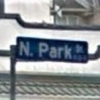Speaking of putting overhead lines underground:
Daily Colonist
May 7, 1960
Underground Wiring
Street Ripping Will Be Over In a Few Days
Last of the major excavation of Victoria's downtown streets for underground wiring, started in 1956, will be over in a few days.
In about a month, the B.C. Electric will let a contract for the installing of wires in some of the 128 miles of four-inch ducts buried in a 30-block downtown area, and of transformers in 38 underground vaults.
This work will continue until next April, and then the final phase of the conversion to underground wiring, the removal of poles, will begin. By the middle of 1962, the last of the downtown power poles is scheduled to be taken down.
...next fall an underground supply line duct will be started from the Horsey substation on Summit to the downtown system.
Ducts for street-lighting wiring also have yet to be completed... but these ducts require only narrow channels cut in the sidewalks.
--
Daily Colonist
July 28, 1960
Building Owners Sink $1,000,000 in New Wiring
Aim of the B.C. Electric is to have downtown buildings all connected with the underground system and the old poles and wires removed by mid-1962.
--
Daily Colonist
June 4, 1967
Concealed Wiring Cost Prohibitive?
Underground wiring to replace unsightly overhead lines seems to be a current aim of most municipalities but at the present time it is an expensive target.
Saanich municipal engineer Neville Life says although he would heartily endorse the placing of the wiring underground, from a landscaping point of view, the cost is almost prohibitive in an established area.
He cited the job now underway along the Gorge between Gorge view and Admirals Road as an example.
"The piece of work is costing $105,000."
A B.C. Hydro estimate to put underground wiring along Cedar Hill Cross Road near the university was $370,000 -- far higher than overhead wiring.
A recent meeting of Oak Bay council suggested another estimate be asked from the Hydro because in its publication, Progress, there was an article claiming the costs of underground wiring were falling markedly.
One of the councillors remarked that with underground wiring there would be a saving in maintenance for the municipality.
Similar points of view were expressed recently at a meeting of the B committee of Esquimalt council.
A spokesman for B.C. Hydro said the article in Progress was correct but it was being interpreted wrongly...
The reduced price does not apply to conversions, but to new subdivisions and places that are not already wired...
"Another point is that people seem to be jumping to the conclusion that maintenance costs are automatically reduced with underground wiring."
"They assume that once the wiring is buried and out of sight the system can be forgotten. This is not so,"
"There are indications the costs are not reduced. Perhaps they may be more."
STILL TOO NEW
The Hydro has not had underground wiring long enough to work out a percentage of maintenance cost ratios to compare with overhead wiring, but indications show the costs are not greatly diminished...
...to repair an overhead cable is a relatively simple matter as opposed to repairing an underground fault which is a major job.
He observed, however, it was much less likely to have underground wires damaged than it was overhead lines.
While he said he would like to see the wiring go underground he agreed that it was an expensive proposition.
--
Daily Colonist
September 28, 1967
Houses Cost Enough Now With Pole-Lined Streets
Mayor Queries Wiring Burial
The cost of underground wiring could push the already high cost of housing even higher, Victoria Mayor Hugh Stephen warned...
Commenting on a report issued Monday by the Victoria branch of the Community Planning Association of Canada, which suggested the removal of utility poles along Marine Drive, Mr. Stephen agreed that the scheme was esthetically good.
"I don't think the municipality or the hydro company will want to absorb this cost."
"If you insist upon underground wiring," said the mayor, "Then houses are going to cost more, because underground wiring costs more."
IT'S DIFFICULT
"We have a situation in Canada where it is difficult for people to afford to buy houses as it is."
"I think they have the right to save money by putting up with the looks of overhead wiring if they wish, while underground wiring can go into the more expensive subdivisions."
Oak Bay Reeve Allan Cox commented that his personal opinion is that it would not be fair to the taxpayers to insist on underground wiring which they would have to pay for.
"We have to remember," said Mr. Cox, "that maintenance costs are bound to be cut when we get wires away from wind, storm, and ice factors."
COULD BE COSTLY
"On the other hand, in changing the wiring, we are asking the utilities to abandon their present materials -- wires, poles and transformers -- and replace them, and that could be costly."
Saanich Reeve Hugh Curtis is chairman of a Union of B.C. Municipalities committee which is preparing a report on underground wiring for the union.
THEY'RE RELUCTANT
"It's obvious that in the past at least B.C. Hydro has been somewhat reluctant to get into underground wiring."
"The municipalities are keen on it..."
...European, and other North American areas, are able to install underground wiring at less cost, by lowering the standards of conduits and cables.
"We don't want to sacrifice safety, but this could be looked into by the provincial inspector and B.C. Hydro."
"The safety factor is also important..."
"Ironically at about the time I was delivering the report a child was killed in the province when a power line fell across the car she was in."
--
Daily Colonist
March 13, 1970
Overhead Power Lines "Never Through Uplands"
Overhead transmission lines are an eyesore and would never be built through Uplands, according to the Vancouver Island manager of B.C. Hydro.
A.J. Macdonald was speaking at a meeting Thursday night organized to protest the proposed erecting of 75-foot-high steel power poles by B.C. Hydro on Interurban and Burnside Roads.
"I don't like seeing that line go overhead," said MacDonald, but he pointed out it was mainly a matter of economics.
...Macdonald said there was obviously danger if a car should hit a pole.
"I suppose there is always that possibility, but it would certainly be extremely remote," he said.
He agreed with a questioner that overhead transmission lines are an eyesore. He said he would like to see all lines go underground.
"We will put in underground wiring anywhere if someone else will pay for it," he said.
"If B.C. Hydro had the money to build transmission lines underground they would certainly go underground, but we could only spread the extra cost over the whole of the rate structure."
"The only place B.C. Hydro gets money is from you people -- every cent of it. If we borrow you pay the interest on the bond and you pay off the debt," he said.
A questioner suggested that the Saanich residents were being treated like country cousins. "I don't think they would put that abortion through the Uplands," he said.
"I quite agree," replied Macdonald. "That is true. I don't think they would put it in the Uplands."
--
Daily Colonist
April 1, 1970
Protest by Council Urged
Gorge Overhead Lines
Victoria city council will be asked to register a strong protest against B.C. Hydro plans to install overhead power lines across the waters of the Gorge.
Council will be asked to seek a meeting with Hydro officials to discuss the problem. If no solution can be found, the city should consider the possibility of taking legal action against B.C. Hydro.
The decisions were taken Tuesday by Victoria's public works committee.
B.C. Hydro's plans involve the building of a 75-foot-high transmission line through four miles of suburban Victoria. Resting on huge pylons, the line is to run along Interurban Road in Saanich to the end of Burnside Road in Victoria.
At Harriet Road, the line is to turn west across the Gorge waters leading into Arm Street on the Esquimalt side.
The petition states that such a project would adversely affect the value of all houses, apartments and motels in the area.
"...Fifty years ago, it was possible to have large residential areas fully serviced without the use of unsightly poles and overhead cables. Surely the same applies today with the improved materials and engineering techniques..."
Ald. Clyde Savage told the meeting the city should consider taking legal action against B.C. Hydro. If all other attempts to put a stop to this sort of pollution failed.
"...We have to stand up to these people," he said.
Ald. Pollen said the city should make it very clear that it wasn't willing to accept anything below a certain minimum standard. B.C. Hydro's proposal to clutter the area with poles and cables, he said, was obviously below any standard.
--
Daily Colonist
April 8, 1970
Go Underground -- For Cash
There is no obstacle to putting B.C. Hydro's controversial Interurban-Burnside power line underground...
"If the people in the Greater Victoria area are prepared to pay the additional cost."
"...underground construction for a line such as this costs approximately 10 times as much as an overhead lining utilizing wood poles."
COST OF LINES
B.C. Hydro has estimated the cost of an underground line at $303,000 a mile; tubular steel poles at $80,000 a mile and wooden poles at $25,000 a mile.
The four-mile line of 75-foot-high steel poles is planned to carry 138,000 volts from Goward substation along Interurban and Burnside to Horsey substation behind the Ingraham Hotel on Douglas Street.
...because the line will be in a rapidly growing metropolitan area, special tubular steel poles will be installed.
"We believe that this will provide a much more pleasing appearance than the standard wood pole line and trust that it will be an acceptable compromise under the circumstances..."
--
Daily Colonist
April 9, 1970
Bury All Wiring in New Areas -- Mayor Curtis
--
Daily Colonist
August 16, 1978
Curb-hugging poles target of alderman
Victoria Ald. William McElroy is embarked on a campaign to have B.C. Hydro power poles relocated away from the edge of heavily-travelled streets in the city.
...poles on some of the city's busiest streets are right on the edge of curbs and constitute a traffic hazard.
Stretches mentioned were Hillside between Douglas and Hillside Mall, Bay Street between the bridge and Government Street, and portions of Esquimalt Road.
"Many of the poles in these areas have been nicked or damaged because they are so close to the road."
...he would like to see the poles replaced with underground connections but realized this could be costly.
A Hydro spokesman said the location of poles close to curbs had resulted from road widening projects undertaken by the city.
--
Daily Colonist
September 22, 1979
Escape the everyday real world at Dean Park Estates (advertisement)
Here on the southeast slopes of Mount Newton you will find a secluded country estate -- a quiet haven separated from the cares and distractions of the commonplace world.
The views are un-real.
Many homesites overlook the beautiful Dominion Agricultural Farm. Many have breathtaking views of the Gulf Islands. Many have unforgettable forest and park vistas. And no matter what sight you set your heart on, all come with a complete range of services, including underground hydro and telephone already installed.
You can also be assured your home and every home within this exclusive community will compliment one another. There is an approving panel to review designs in order to maintain a high architectural standard and overall compatibility.
Edited by aastra, 23 January 2020 - 08:15 PM.














